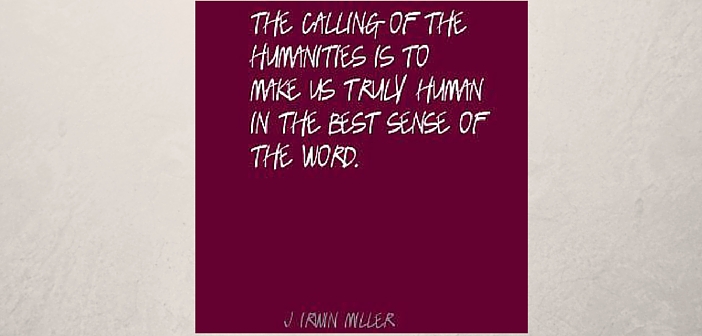Today, Humanities, Social Sciences and Liberal Arts may be at the bottom of the pyramid when it comes to making choices in higher secondary and university level courses in India. The preference for Engineering and Management Studies over subjects like Economics, History, Sociology, Public Administration, Psychology, Language and Literature and Mass Communication, hardly surprises us because that is how the Indian education system has got moulded over the years and shaped by sociocultural perceptions, economic compulsions and unquestioned priorities.
With suitable interventions for skill development and job-oriented training in Humanities can be made less academic and more vocational. There is tremendous scope to renew interest in these disciplines and make them aspirational for career, research and higher education. These 5 ways can help us get started:
 Changing perceptions: When students are made aware of livelihood options and vocational aspects like the jobs (other than teaching and government service), it conveys the value and relevance of the discipline. Earlier people would go for Humanities by force and not by choice, often as a last resort. Today, even this trend is dwindling since the number of engineering colleges that have mushroomed can easily accommodate these students. In fact, many students and parents are not even aware of other options like Humanities.
Changing perceptions: When students are made aware of livelihood options and vocational aspects like the jobs (other than teaching and government service), it conveys the value and relevance of the discipline. Earlier people would go for Humanities by force and not by choice, often as a last resort. Today, even this trend is dwindling since the number of engineering colleges that have mushroomed can easily accommodate these students. In fact, many students and parents are not even aware of other options like Humanities.
Cooperation from the industry: The Engineering + MBA combination seems to become the norm no matter what your job role is. The industry can identify areas where Humanities graduates and postgraduates can contribute and get deserving remuneration. This requires immediate changes to the curriculum and special emphasis on how it needs updating in terms of new developments in the industry. It will also help in overcoming attitudinal problems related to the ‘inferiority’ and ‘low-IQness’ and build a positive image.
Blend the ‘pure’ subject with the ‘applied’: To build the vocational element, one needs to show how knowledge can be applied practically in performing tasks, solving problems in real life. Humanities, when combined with analytical skills, research skills, problem solving, communication skills, creativity, critical thinking and digital skills open up new ways to deliver practical value that can be translated into innovative solutions for the industry.
Catch them young: Identifying aptitude for Humanities and nurturing talent at young age can definitely make a difference to the quality of students who get into this stream. With innate inclination towards these disciplines, these students can be skilled appropriately for suitable jobs, or can be trailblazers by getting into new job roles. What’s desperately needed here is to show that they can earn a living confidently and seek lucrative careers that suit their natural disposition.
Institutional support for research and training: Since Humanities can provide the much needed balance in the educational ecosystem that is dominated by preference for other subjects, it needs to be supported with various incentives. Students need to be encouraged to pursue these disciplines with pride and feel confident that they are second to none.
Instead of perpetuating the dichotomy between disciplines and relegating some to the margins, it’s high time Humanities gets its due recognition and regain its lost splendour in the academy, industry and research institutions.
Thanks Anirban Guha for your inputs.












